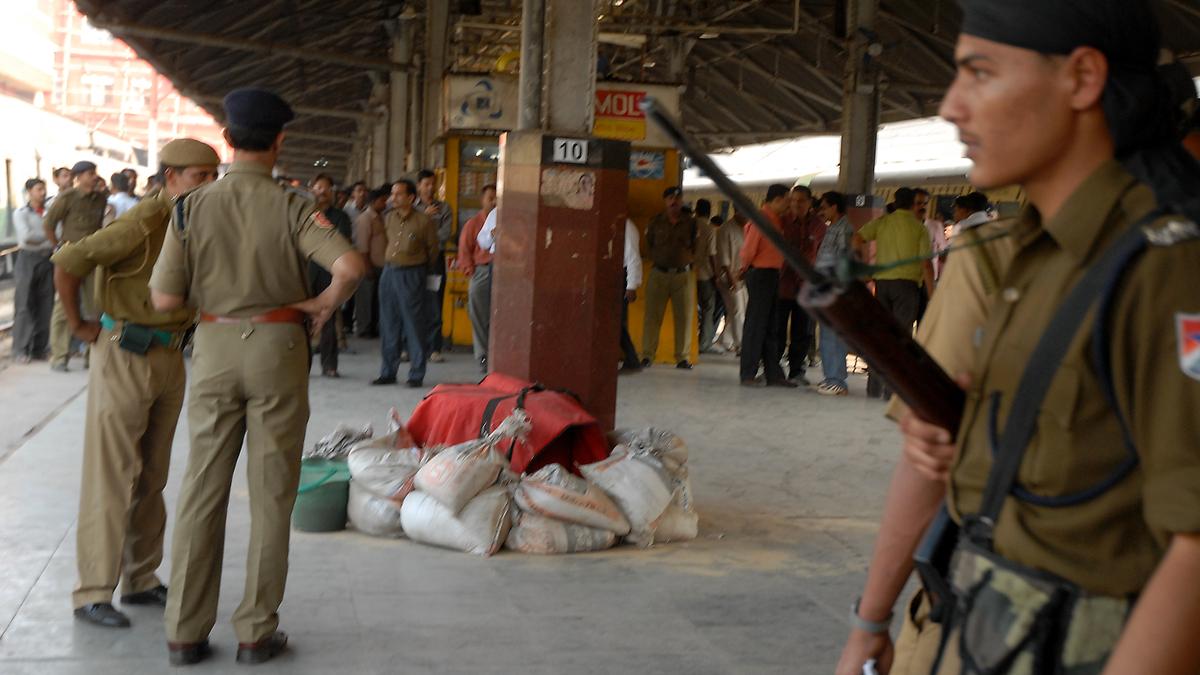
Phone of Katihar Express murder victim leads police to ‘serial killer’
The Hindu
Howrah GRP and CID uncover inter-State links to 'serial killer' targeting handicapped and women passengers on moving trains.
The Howrah Government Railway Police (GRP) and the West Bengal Criminal Investigation Department (CID) have unearthed inter-State links to a ‘serial killer’, tracing the moving signal of the mobile phone of the handicapped passenger recently found dead on Katihar Express.
The accused, 30-year-old Rahul alias Bholu Karamveer Jat, is a resident of Haryana’s Rohtak district and was recently nabbed by Valsad Police in Gujarat, in connection with the alleged rape and murder of a 19-year-old college student.
According to CID sources, during the investigation of the case, the accused confessed to committing multiple crimes across States like Uttar Pradesh, Rajasthan, and Haryana, including the murder of the Katihar Express passenger.
The body of the deceased passenger, identified as Soumitra Chatterjee, was found on November 19 on the upper berth of the handicapped compartment of the Katihar Express on its arrival at Howrah Station.
The deceased’s body was covered in a blanket and had multiple stab injuries. His belongings, including his phone, were missing.
Howrah GRP was investigating the case with assistance from the CID.
The accused has reportedly been described by Gujarat Police as a “serial killer”, given his connections to multiple murder cases between October and November.

“Writing, in general, is a very solitary process,” says Yauvanika Chopra, Associate Director at The New India Foundation (NIF), which, earlier this year, announced the 12th edition of its NIF Book Fellowships for research and scholarship about Indian history after Independence. While authors, in general, are built for it, it can still get very lonely, says Chopra, pointing out that the fellowship’s community support is as valuable as the monetary benefits it offers. “There is a solid community of NIF fellows, trustees, language experts, jury members, all of whom are incredibly competent,” she says. “They really help make authors feel supported from manuscript to publication, so you never feel like you’re struggling through isolation.”

Several principals of government and private schools in Delhi on Tuesday said the Directorate of Education (DoE) circular from a day earlier, directing schools to conduct classes in ‘hybrid’ mode, had caused confusion regarding day-to-day operations as they did not know how many students would return to school from Wednesday and how would teachers instruct in two modes — online and in person — at once. The DoE circular on Monday had also stated that the option to “exercise online mode of education, wherever available, shall vest with the students and their guardians”. Several schoolteachers also expressed confusion regarding the DoE order. A government schoolteacher said he was unsure of how to cope with the resumption of physical classes, given that the order directing government offices to ensure that 50% of the employees work from home is still in place. On Monday, the Commission for Air Quality Management in the National Capital Region and Adjoining Areas (CAQM) had, on the orders of the Supreme Court, directed schools in Delhi-NCR to shift classes to the hybrid mode, following which the DoE had issued the circular. The court had urged the Centre’s pollution watchdog to consider restarting physical classes due to many students missing out on the mid-day meals and lacking the necessary means to attend classes online. The CAQM had, on November 20, asked schools in Delhi-NCR to shift to the online mode of teaching.









